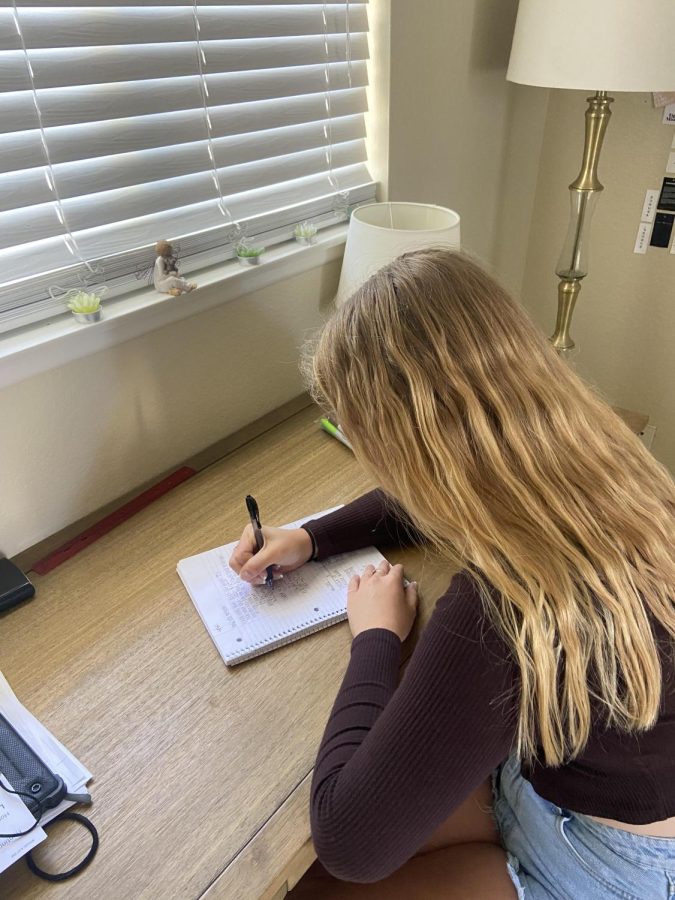How to Maximize Your Productivity
The spring season of high school is often the most stressful time for lots of students. For some, cumulative finals are in the near future. Others have term papers and semester projects due. Not to mention, seniors typically have to prepare for college by honing their study skills and underclassmen start to prepare for their next year of high school.
While it is easy to get overwhelmed, there are certain things students can do and habits they can implement into their routine to make their lives a bit less stressful. Here are some tips to help you be your most productive self:
1. Set aside timed breaks.
Even if you have a lot to do, delegating yourself five-minute breaks here and there can help your focus and decrease burnout throughout the time you are working. One break strategy is the Pomodoro Technique. Made popular by Francesco Cirillo in the 1980s, the method recommends 25 minutes of work with no distractions followed by a five-minute break. Millions of people across the globe find this tactic works and lessens their stress. Putting a time limit on your work makes your task seem more manageable and helps you ground yourself at the moment instead of worrying about how long it will take to complete the task. Additionally, the five-minute breaks allow for recharge time and a brain break, boosting your focus once you are in your next twenty-five-minute session.
2. Pick a specific study space.
Instead of doing your work wherever you happen to be, find one place, either inside of your house or out at another destination and always do your work there. This could be a certain room in your house, your favorite coffee shop, or your local library. By having one certain place you always work at, you will begin to associate that place with being productive and doing your work. Also, having a set study space allows your bedroom to be a place of relaxation and de-stressing, somewhat of a calm zone, that you go to after finishing a study session.
3. Set realistic goals.
When setting goals for your final grade in a class, a grade on a specific test or project, or even a goal of how much you are going to get done in a certain day or week, make sure to be realistic. While everyone wishes they could receive perfect scores on everything, lots of times this will result in feeling overwhelmed. It is important to set goals that are ambitious but are also very achievable with hard work.
4. Focus on the difficult tasks first.
Although you may want to get your easy, quick assignments done first, it is always best to embark on your larger, more difficult assignments before you begin to lose motivation and get exhausted from other work. It is easy to procrastinate your bigger, daunting tasks by doing the smaller, easy ones, but a lot of times, this will result in you never actually getting to the bigger tasks you kept putting off. Getting more difficult things done earlier in your day will also make you feel accomplished and even more ready to do the other comparatively easy things.
5. Break down large tasks into smaller increments.
Another thing you can do to help yourself tackle a big project, essay, or assignment, is to break it down into smaller pieces that are more achievable to do in a sitting. For example, instead of just studying for your final altogether, write down each of the chapters or units you need to study, and focus on just one at a time. It can help to write down the big task, and then underneath outline all of the smaller parts that make up that task. This keeps you on track and will make you feel productive each time you cross out one of the smaller parts. Doing so can also make you feel better about your progress because you can see exactly what you have accomplished instead of feeling like you barely made a dent.
6. Reward yourself for getting things done.
An easy motivator to get yourself in the mood to be productive and get things done is to plan to give yourself incentives once you finish things or spend a given amount of time doing work. While it can be easy to just give yourself what you want, it could be something materialistic like your favorite Starbucks drink or an activity like watching the newest episode of your favorite show. Try to hold back from giving yourself these things until you have been productive. This creates a goal in your mind and gives you something to look forward to during your otherwise mundane workday.
7. Eliminate distractions.
In today’s day and age, we constantly have so many distractions around us, especially from technology. Most people have hundreds of notifications — text messages, emails, snapchat notifications, and other app reminders — popping up on their computers and phones every day. Even though you think it only takes two seconds to respond to an email or text, this time adds up fast, and all the sudden you are distracted and in a full on conversation with someone online. Instead of reaching for your phone every two minutes, try setting a timer and putting your phone away and on do not disturb until the timer rings.
Through using these seven tips, you can ensure that you will be able to have a productive study session and actually get your work done in a timely manner. Happy studying!
Your donation will support the student journalists of Huntington Beach High School. Your contribution will allow us to cover our annual website hosting costs.
Thank you for supporting our program!







